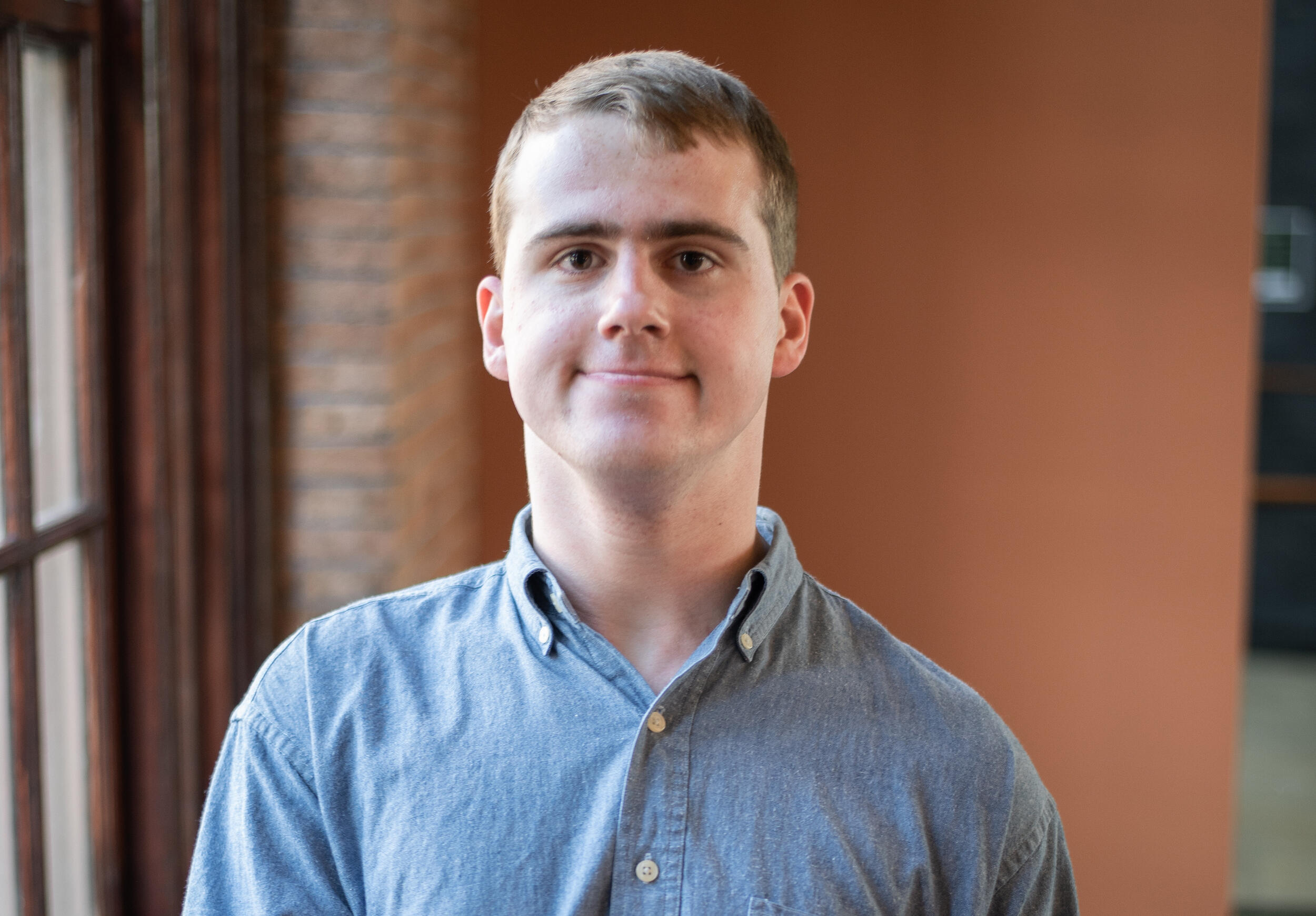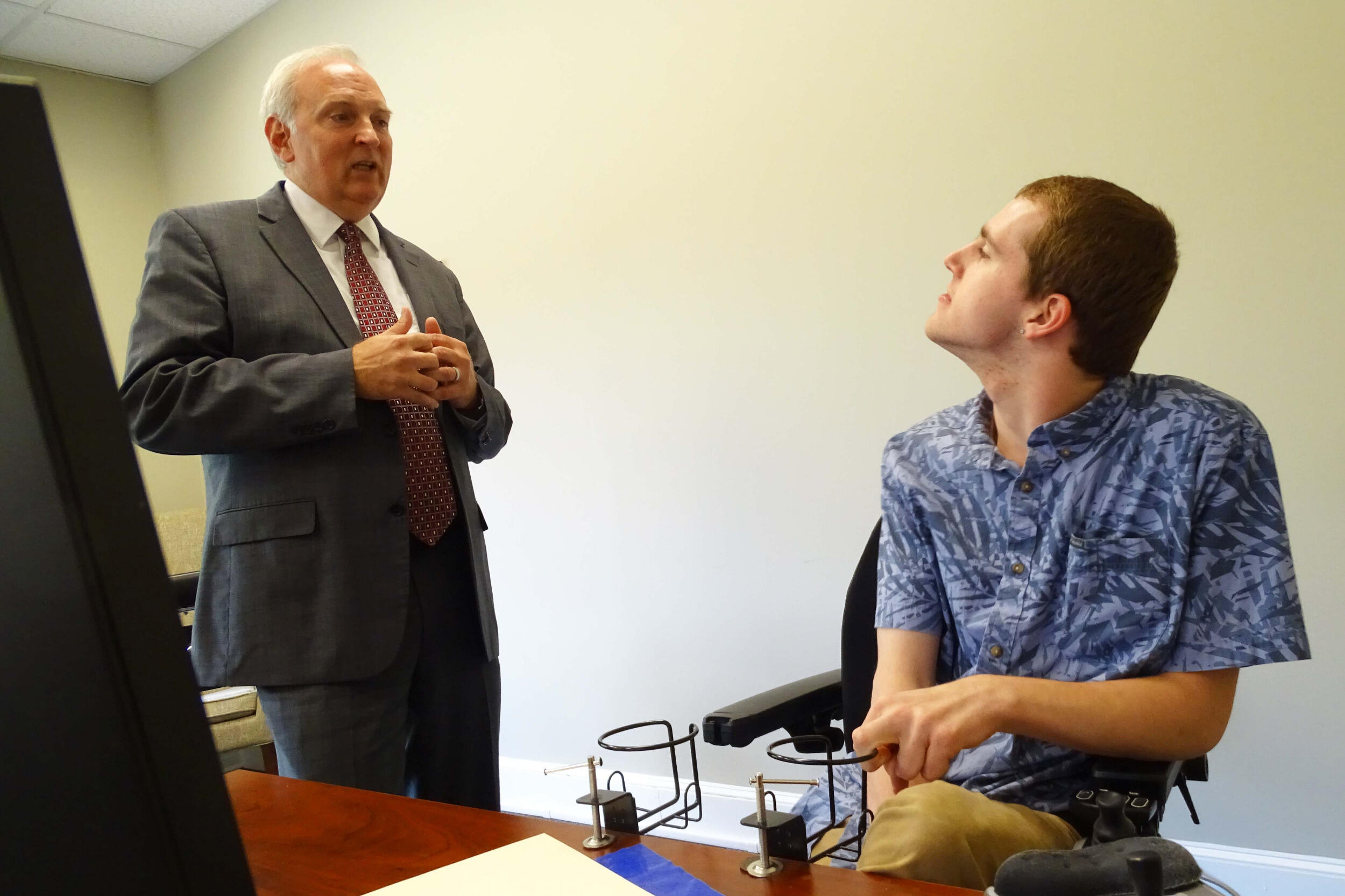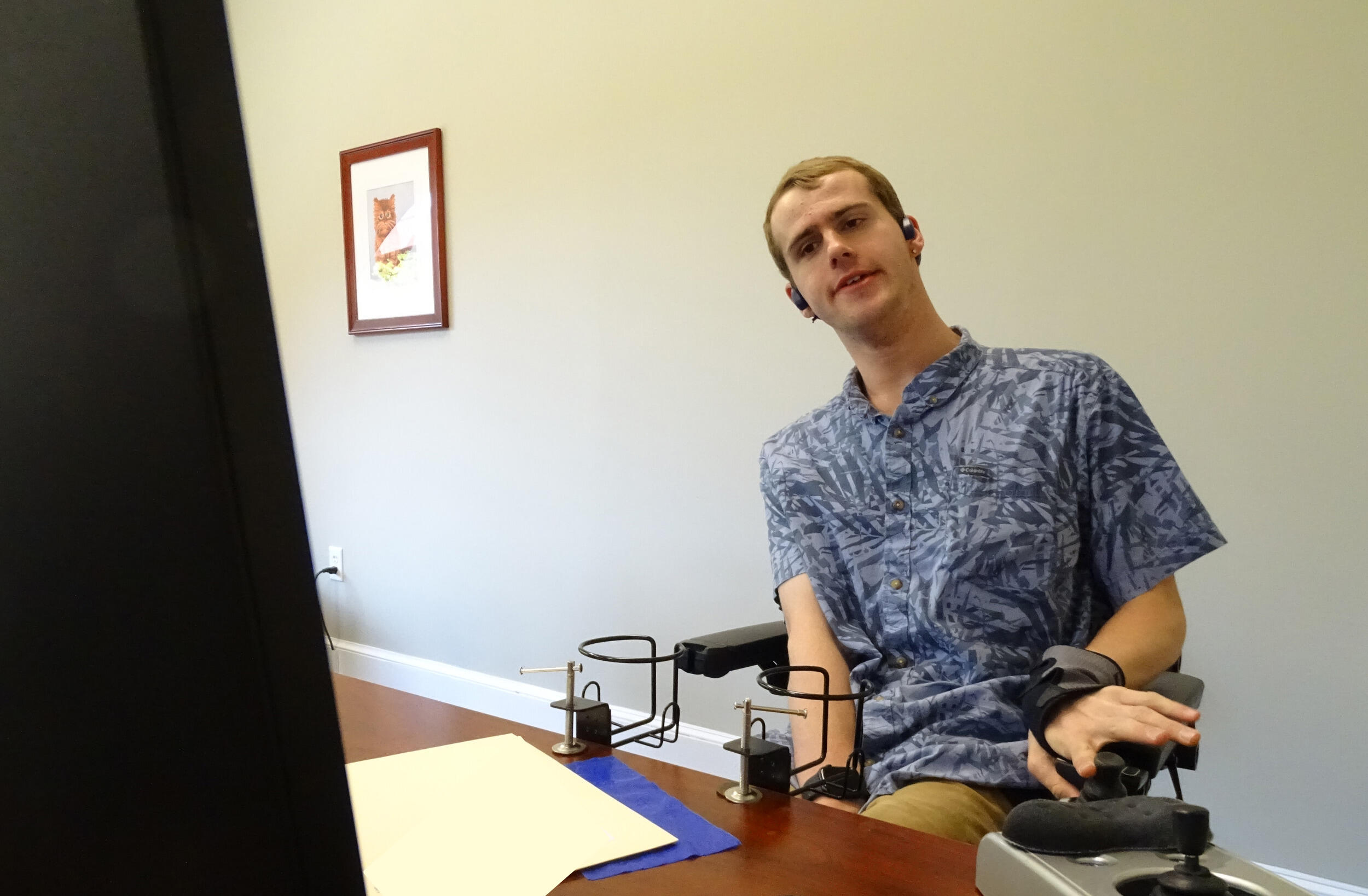
May 23, 2024
VCU special education major connects life, school, work and a passion to serve others with disabilities
Share this story
As Chad Lowery continues his undergraduate studies at Virginia Commonwealth University, he also is finding his way in the working world – and proving a point.
“You need to really know a person as they are,” he said, “instead of what they look like.”
Lowery, who has cerebral palsy, is a student in VCU’s School of Education, majoring in special education. He also is a legal assistant at a local law firm specializing in disability rights and advocacy – a position he secured through VCU’s Rehabilitation Research and Training Center.
“I have a passion for helping other individuals with disabilities,” Lowery said. “I feel like people – or society, rather – doesn’t expect individuals like myself to have the desire of having a job, going to school, having a career, having a family someday. And I think RRTC is a good resource to show society you can’t judge a book by its cover.”
After graduating from high school in Chesterfield County in 2018, Lowery joined the RRTC’s Business Connections program the following year. Specialists with the supported employment service provider help Richmond-area clients with disabilities in finding competitive, integrated employment in the community and provide ongoing support.
Mallary McEvoy, an RRTC employment specialist, met regularly with Lowery to review his strengths and interests, such as advocacy for disability rights, supported employment and special education, as well as a chance to work with individuals with disabilities. And she helped highlight his potential as a job candidate, which included previous work experience as a communications and data assistant.
“We were able to create, through the support of his job coaches here, a visual résumé that played into his strengths,” McEvoy said. “One of those things was that Chad had some really awesome artwork. He had a modeling gig at one point, and we were able to put some of those modeling pictures on his visual résumé and just allow that alternative format to show Chad as a whole person. That person-centered approach helped him build confidence but also stick out as a candidate.”
The approach highlighted Lowery’s communication, computer and technology abilities, plus his strong personality, friendly demeanor, and outgoing and collaborative approach to work.
“And from the start at BeneCounsel, Matt saw possibility instead of disability for Chad,” McEvoy said.
Matt Bellinger had started BeneCounsel in 2014. The Richmond law firm, which specializes in disability benefits and legal services such as guardianships and powers of attorney, developed from personal experience: the barriers and difficulties of navigating disability benefits for his child.
“I was trying to figure out Medicaid waiver services, getting really confused, threw my pen down and literally thought to myself, ‘You’d have to quit your job and do this full time to figure it out’ – and I was an attorney,” Bellinger said. “That’s where the lightbulb went off. If I need help, so do other parents.”

In 2022, as the firm’s caseload had grown, he began searching for legal assistants. He decided to hire individuals with disabilities.
“I was thinking, I could go the standard route and hire a paralegal. But then I started thinking, well, that’s typically how you would do it, but is that really what I should do?” Bellinger said. “Why don’t I hire a person with a disability, because that’s who I serve? The more I thought about that, the idea grew, so that’s what we did.”
Bellinger was familiar with VCU’s RRTC through a family member who had used its Business Connections program. He sent the job description and application process to a number of organizations, and Lowery was among the applicants. Bellinger hired him in 2023 – and has high praise for his colleague.
“Chad is super focused,” Bellinger said. “Chad does all of our guardianship documents. Chad writes the powers of attorney and recently started doing trusts and wills. So it’s not just clerical work. We’re ahead on guardianship cases. Chad is doing the work.”
Lowery relishes the connection that develop through his work.
“I really like collaborating with our clients or just people,” Lowery said. “I’m very interpersonal. I like building relationships and expanding my network of people.”
Lowery uses assistive technology in his everyday work. A joystick and Bluetooth connection from his wheelchair allow him to use a dwell clicker to highlight part of a computer screen and click on items. A screen-based keyboard with some word prediction helps him type more efficiently. Lowery played a key role in establishing what technology he would need to be successful.
“He’s really on top of it with his tech, and he was able to self-advocate and say, ‘Here’s what I need, here’s what I don’t need,’” McEvoy said. “His employer was super involved in the process, which made it so much more helpful because Matt, from the start, was willing to be a part of that conversation rather than just be told what to do.”
Bellinger’s engagement on such issues reflect a big-picture perspective he brings to his work and his colleagues.

“The benefits to my organization, and I think any organization that successfully hires persons with disabilities, is that you become a better organization,” Bellinger said. “In order for it to work, you really have to focus on the employees – what are their needs, anticipate the accommodations they may need – and that has a carry-over effect on your other employees, too. If you’re focusing on your employees with disabilities to make them successful, you’re also going to be focusing on your employees without disabilities to make them successful.”
Lowery added, “I may have a disability and I may need accommodations, but it doesn’t mean you have to change the whole process and protocol or the job description. I want to normalize individuals with disabilities [being employed].”
As he continues his education at VCU and his work at BeneCounsel, Lowery looks forward to a future framed by helping others with disabilities.
“I want to do something in the area of special education,” he said. “It could be a teacher, it could be a college professor, but I know that I want to be a voice of the community.”
Subscribe to VCU News
Subscribe to VCU News at newsletter.vcu.edu and receive a selection of stories, videos, photos, news clips and event listings in your inbox.










